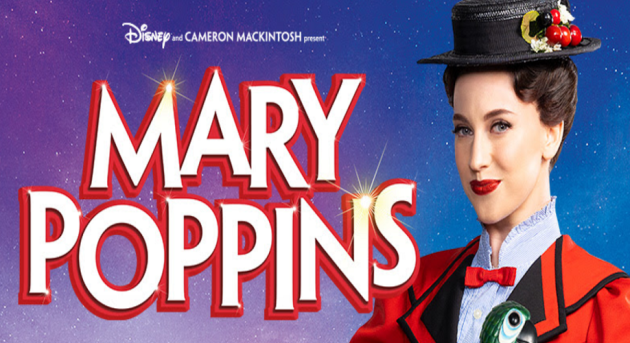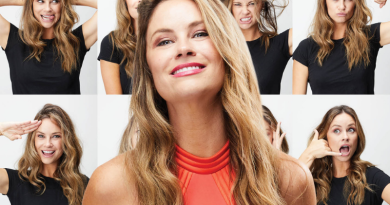Mary Poppins and the pointless pursuit of ‘practically perfect’ parenting
Mary Poppins is sometimes hailed as the ultimate feel-good story. It’s easy to see why. A magical, ‘practically perfect’ female descends into a scene of domestic dysfunction and proceeds to set the world to rights. Along the way, great fun and frivolity punctuate the ‘fixing’ of the Banks family. It’s a narrative that is perennially popular and causes the heart to take comfort, especially in dark and depressing times.
The current season of this spectacular musical, which opened at the Sydney Lyric Theatre on 15 May, ticks all the boxes when it comes to the feel-good factor. The involvement of big names like Cameron Mackintosh, Julian Fellowes, and Matthew Bourne virtually guarantee quality entertainment. The story itself inspires confidence that everything will turn out right in the end. And classic songs like Supercalifragilisticexpialidocious cannot fail to raise a smile.
What’s not to like?
Well, nothing at all. But all may not be fun and high jinks…
Entertaining and uplifting as Mary Poppins is, the more cynical among us cannot help but dig beneath its joyous surface and examine what lurks there. The fact that Disney produced the 1964 film version suggests the possibility of darker themes, given Disney’s penchant for stories with a serious message.
So what is Mary Poppins really about?
The story is set in turn-of-the-century London. The setting is perfect for displaying a patriarchal society in flux. Mr Banks is the often-absent husband and father, epitomising traditional values; he is the breadwinner in the family, as his name makes abundantly clear. Mrs Banks is embracing the zeal of the suffragette movement, which was pursuing its aims with far more success than its precursor, the more moderate suffragists, had. For women, the lesson was loud and clear: peaceful protest would achieve nothing; aggressive action gets you what you want. So while Mrs Banks is in the throes of this exciting new cause, the children – Michael and Jane – are pushing boundaries of their own. The solution? An ersatz mother, in the form of Ms Poppins.
Is this to suggest that Mrs Banks is at fault for the behaviour of her wayward children? More likely, it is pointing the finger at a male-dominated culture that necessitated the suffragette movement in the first place. Some would argue that, as a mother, Mrs Banks puts self-interest ahead of her children; equally, however, what she is doing is trying to secure a more equitable future for the next generation of females – including her own daughter, Jane.
But the historical period of the setting – Edwardian England – is just the start of the critique of an unjust society. The dates of the release of the book (1934), the later film version (1964), and the current musical season (2022) have one common denominator: each coincides with a period of chaos and turmoil, particularly in relation to the role of women and parenting.
The prose version of Mary Poppins by Australian writer PL Travers was published in 1934. In the grip of the global Great Depression, many women were compelled to go out to work. The First World War had, of course, kick-started the changing dynamics in the family and the workplace. In the state of Victoria, women won the right to stand for election. Changes were afoot. Many of these women were mothers, so what became of the children? With no Mary Poppins-style substitute to care for them, offspring would often find themselves supervised in loco parentis by extended family, such as grandparents. Could Travers have had the foresight to be warning of potential chaos if children do not receive the parental attention and guidance they require? She does seem to advocate, through her eponymous character, the positive impact of ‘tough love’, as meted out by the super-Nanny. In other words, she sends a rather modern message: consistent and good quality childcare is vital for a society to function healthily.
Later, when the Disney film burst onto the scene in 1964, the ‘second wave’ of feminism was having its heyday. Grassroots activism and protest were the order of the day. By the time Mary Poppins was released, Betty Friedman’s The Feminine Mystique was causing a stir. And in 1961, women had been granted access to the contraceptive pill – although on the condition that she had both a prescription and a husband. She would also have to pay a hefty 27.5 per cent tax on this ‘luxury’ item. What did Mary Poppins have to say to its 1960s audience? It could be received in one of two ways: with family life supposedly under threat as a side-effect of the growing independence of women, the story could be seen as desperate attempt to convince women that their place was in the home, lest they subject their children to neglect and unruliness; more optimistically, it could be conveying reassurances that, with the right provision in place, their children can flourish under the care of a competent stranger.
And what of 2022? With the majority women today – whether of necessity or choice – going out to work, safe and reliable childcare is imperative. And yet, almost a century after women secured the right to vote, the question of childcare is still far down the political agenda. According to The Conversation, one of the reasons for this is that nobody appears to be responsible for the sector. Australia has one of the highest levels of privatisation in the world where childcare is concerned, meaning that it is outside of government control, other than in the setting of wages. And in early years education, the crisis is spiralling: crippling bureaucracy, burnout, low morale, and poor pay are contributing to an exodus of educators – 91 per cent of whom are women. Will new Prime Minister, Anthony Albanese, realise his aspiration to one day give every family – regardless of income – a 90 per cent subsidy for childcare (as reported in Daily Mail Australia on 4 March 2022)? Will he tackle the current shortage of childcare provision? If not, then what is the fate of children, Australia’s future?
Currently, as in the pre-Poppins Banks household, chaos reigns – but rather depressingly, minus this magical being to restore order. Women are the mothers of today’s children, so addressing their concerns is, by default, also prioritising the needs of children. Perhaps Mary Poppins is subversively trying to teach this harsh lesson, in the hope that delivering it with a ‘spoonful of sugar’ will make it more palatable.
But working mothers should take some comfort – trying to be a ‘practically perfect’ parent is futile and guilt-inducing. Just think of that loaded first name and its biblical connotations. Mary Poppins is, after all, an idealised, supernatural creature.
She’s not real.




